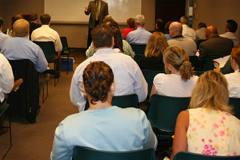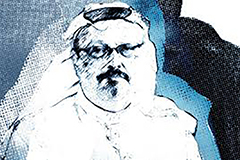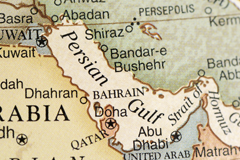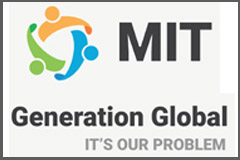
Myron Weiner Seminar Series on International Migration
The seminar explores factors affecting international population movements, their impact upon sending and receiving countries, and the policy issues prompted by migration. It is sponsored by the Inter-University Committee on International Migration and is open to the public.

Joint Seminar on South Asian Politics
South Asia's economic and strategic relevance has grown significantly and offers enormous intellectual and scholarly interest. The seminar, co-sponsored by MIT, Brown University, and Harvard University, explores the region with leading experts.

MIT X TRUE Africa University (TAU) Webinars
CIS and its MIT Africa Program partnered with the newly launched TRUE Africa University (TAU) to host a webinar series focusing on various aspects of sustainable development in Africa. MIT alumnus and CIS research affiliate Claude Grunitzky interviews the thinkers, shapers and doers who he sees as the inventors of the future of Africa.

Jamal Khashoggi Fellowships
The Jamal Khashoggi Fellowship at MIT was offered in partnership with Democracy for the Arab World Now (DAWN) and was open to all MIT students.

Keeping America Safe: Critical infrastructure cybersecurity policy
In an MIT report published in March 2017 and based on a two-year study led by CIS and CSAIL researchers with leaders from industry and government, the team has made a series of recommendations for the incoming Trump administration to develop a coherent cybersecurity plan. To learn more, read the news release and related media coverage. The report is available here.

Persian Gulf Initiative
The Persian Gulf Initiative explored the shifting dynamics in this region by refocusing the lens from US-centric to region-centric, and to include issues that affect the domestic and regional political and security environment.

The Program on Environmental Governance and Sustainability (PEGS)
The Program on Environmental Governance and Sustainability (PEGS) was founded by DUSP Professor JoAnn Carmin to educate MIT students on impact research on the environment. It provided funding for student research, a working group, and seminars. Several PEGS Fellows were selected each year for research support.

Generation Global
MIT Generation Global was a pilot outreach program to public high schools. The program connected high school students with MIT undergraduate and graduate students who are passionate about solving global problems. Through field trips, guest speakers, field research, and various activities, students learned about a global issue from its complex social, political, economic, and technological dimensions. After developing a strong understanding of the issue, students designed authentic solutions for addressing the problem.

Program on Human Rights and Justice
The Program on Human Rights and Justice brought to campus speakers, seminars, research support for students, and visiting fellows to engage on a wide range of human rights topics. DUSP Professor and program director Balakrishnan Rajagopal also lectured on human rights and took students on research trips to India.

Jerusalem 2050
Jerusalem 2050 was an ambitious, innovative program to “imagine a city at peace” in 2050. The program had many components, most prominently an international competition to produce ideas—from urban planning, political science, economics, and other disciplines—for improving the prospects of a harmonious city decades hence. Several promising projects were funded, and the awardees spent a semester working with faculty at MIT. The project was spearheaded by Professor Diane Davis.

Urban Resilience
Urban Resilience was a joint program of the Department of Urban Studies and Planning and CIS led by Professor Diane Davis of DUSP. Through case studies of eight cities around the world funded by the US Agency for International Development (USAID), the project on urban resilience in situations of chronic violence produced a study for USAID to guide its funding on resilience.



